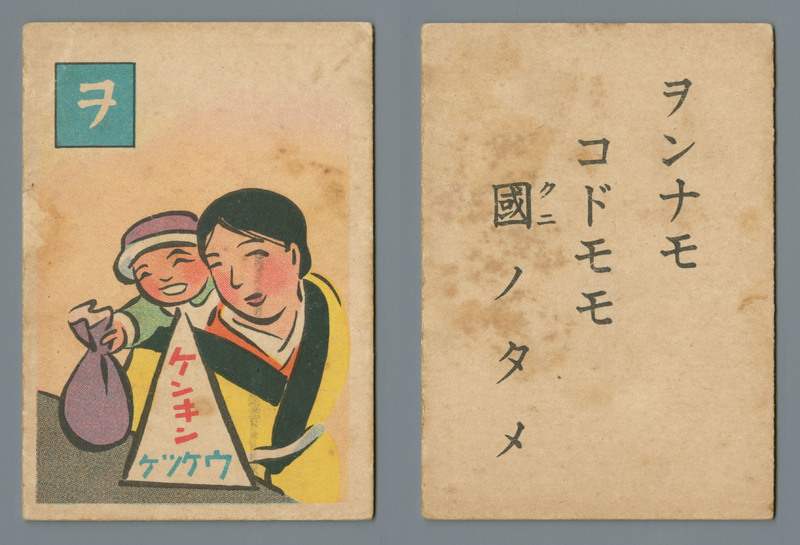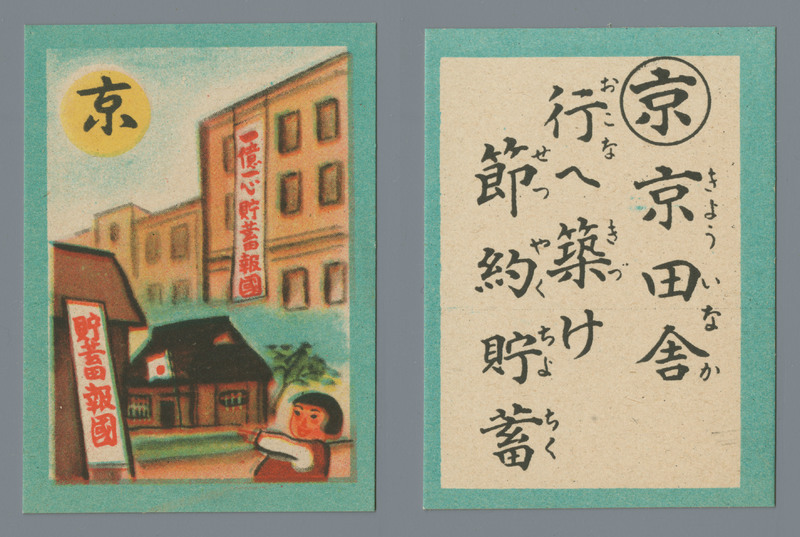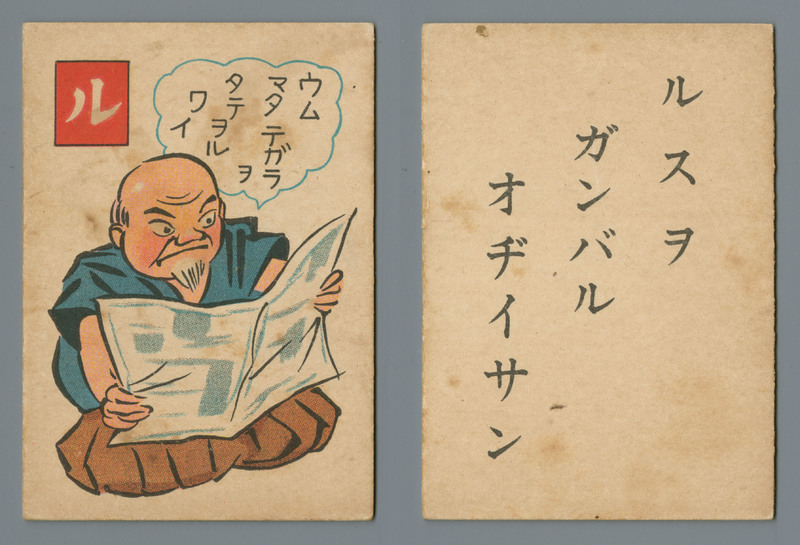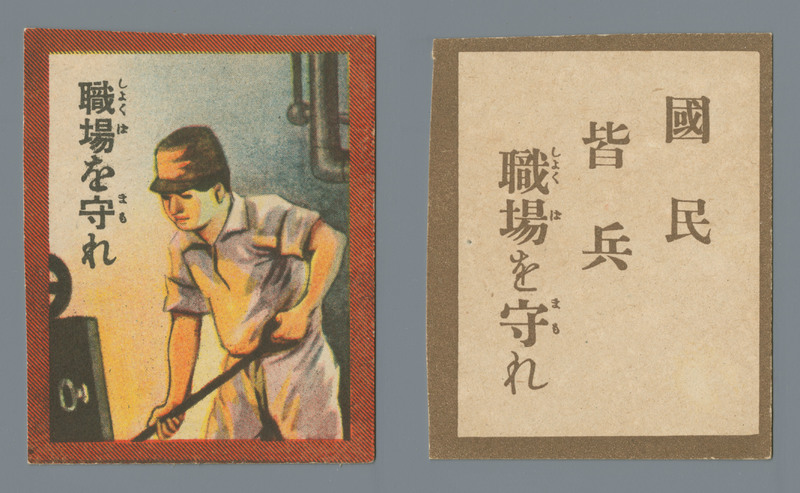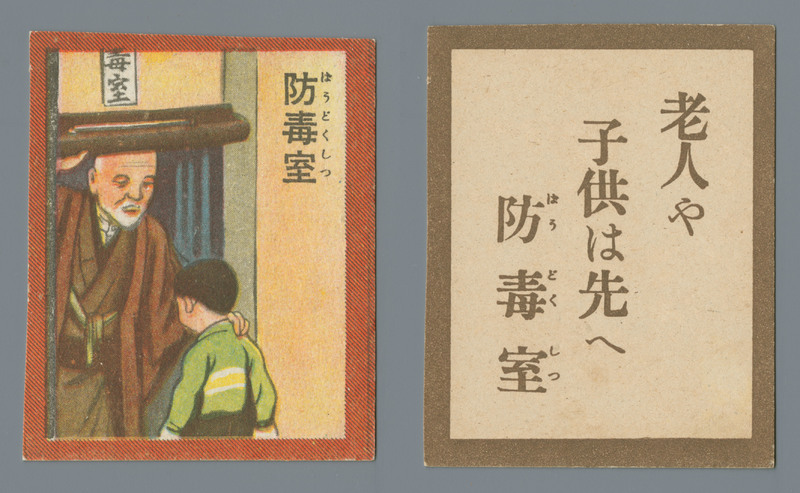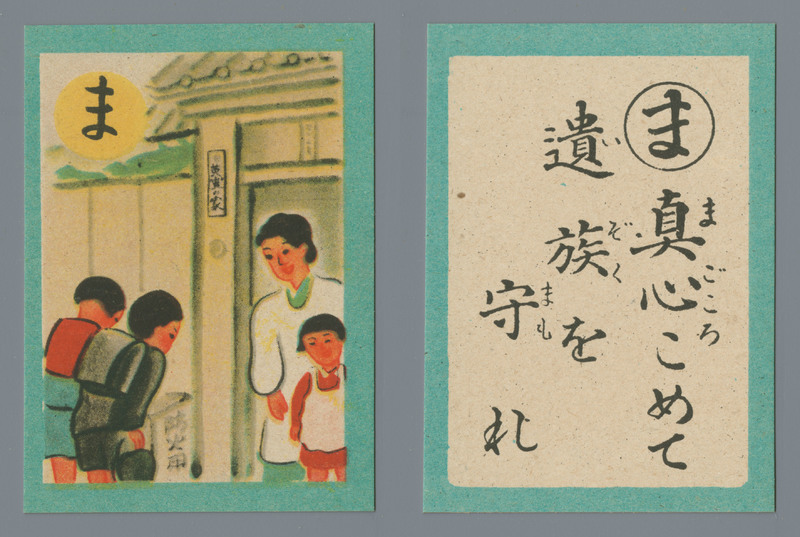Supporting from the Home Front 銃後からの支援
The card to the left shows a woman carrying a child, depositing money at a donation reception desk. As early as 1931, after seeing photographs of Japnese soldiers without metal helmets, a group in Gunma Prefecture began to raise money to buy them for the soldiers (Young 159). This fundraising then spread to other localities, which proved effective units for the raising of military funding (Ibid.), expanding to the funding of military planes called the 愛国號 aikokugou - the Patriotic No. (X) (Ibid., Ritsumeikan). Even colleges and universities raised funds to have their name placed on the wings of a fighter plane that their group donations helped build.
This card reads:
Women and,
children too,
for the sake of the country.
No one, not even the very young, should lose the opportunity to support the soldiers abroad.
The Military Country card set and the Asian Development card set (in particular) emphasize donations and the formal saving of money in banks as ways to help the nation at war. I suspect that the Asian Development set may have even been a prize or gift given to new account holders or big donors, because of the strong emphasis on savings and donations.
This card, from the set that emphasizes donations and saving money shows a small girl pointing at a sign in front of a thatched structure, meant to represent the countryside, and above, a highrise building, meant to stand in for the city. The signs read, "100 Million, 1 Mind: Savings Patriotism" and in the village, simply, "Savings Patriotism". One hundred million was the number settled upon by the Japanese government that represented the population needed on the home islands of Japan to effectively rule the colonies it took.
The recitation card reads:
In the capital and in the countryside,
practice and build
frugality and savings.
Likewise, this card from a different set, shows an older man, wearing what, even at the time, would have been considered 'traditional' Japanese garments (hakama and kataginu), reading a newspaper and thinking about the 'easy wins' of the Japanese. The card reads:
Doing his best,
the old man
takes care of the home
Too old to be in the fight, the older man on the home front could use his literacy and traditional values to 'do his best' and look after others at home.
Those of fighting age but not conscripted soldiers were instead, conscripted in a different fashion. This card shows a man perhaps stoking a boiler, or smelting and reads:
Citizens
Universal conscription
Guard the workplace!
On the home front, we are to understand, one should be as serious about work as if one was a conscripted soldier.
One other job for people on the home front that appears most frequently in the War Vocabulary card set is that of disaster preparation in the home, neighborhood and nation. Children are taught to prepare sand and standing buckets full of water in case of incendiary bombs, cards depict women out fighting fires in brigades, elementary school children lining up with gas masks on and more. This card show an older man leading a child into a gas tight shelter - perhaps a room with a special seal over the entrance - that protected people from chemical weapons. The card reads:
The old
and children first,
into the gas tight shelter
Last, one game card tells children:
With your whole heart,
protect and look after
the surviving family
The card shows two elementary school aged children bowing at a smiling widow and her smiling small child. We are to understand that she has lost her husband, and the child, its father. The gate to the house has a sign on it reading 'a surviving family'.
The pain of the loss for the widowed family is not depicted visually or in the text, and even the widow's clothing, as drawn, suggests she is not mourning (when one would wear black or other dark colors), instead wearing the light green of spring and new beginnings.
Children should look after these families, and in return, widows and the orphaned must not show grief.

